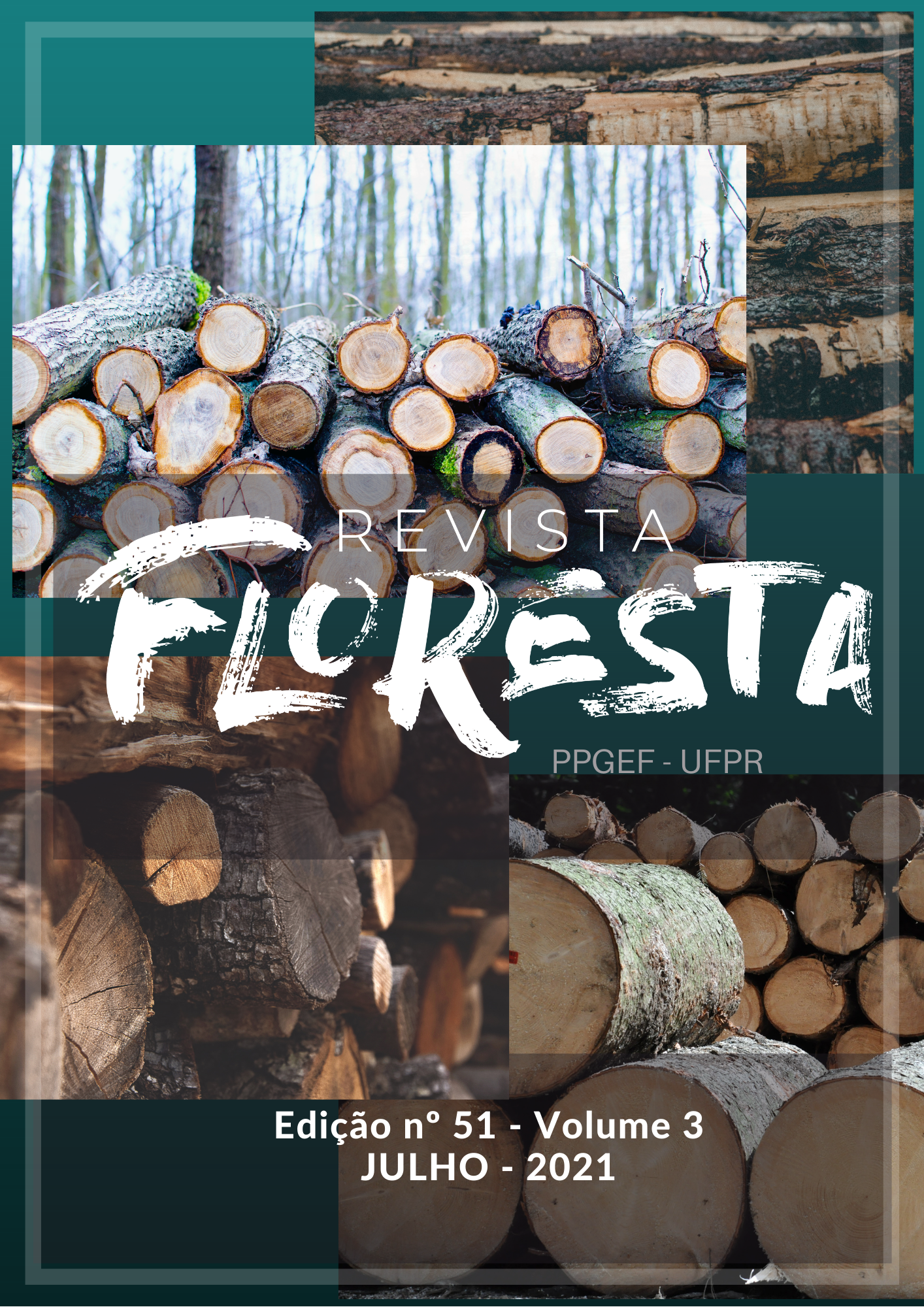CAN LINEAR PROGRAMMING ASSIST METAHEURISTICS IN FOREST PRODUCTION PLANNING PROBLEM?
DOI:
https://doi.org/10.5380/rf.v51i3.72612Palavras-chave:
Operational Research, Forest Management, Artificial IntelligenceResumo
The planning of forest production requires the adoption of mathematical models to optimize the utilization of available resources. Hence, studies involving the improvement of decision-making processes must be performed. Herein, we evaluate an alternative method for improving the performance of metaheuristics when they are applied for identifying solutions to problems in forest production planning. The inclusion of a solution obtained by rounding the optimal solution of linear programming to a relaxed problem is investigated. Such a solution is included in the initial population of the clonal selection algorithm, genetic algorithm, simulated annealing, and variable neighborhood search metaheuristics when it is used to generate harvest and planting plans in an area measuring 4,210 ha comprising 120 management units with ages varying between 1 and 6 years. The same algorithms are executed without including the solutions mentioned in the initial population. Results show that the performance of the clonal selection algorithm, genetic algorithm, and variable neighborhood search algorithms improved significantly. Positive effects on the performance of the simulated annealing metaheuristic are not indicated. Hence, it is concluded that rounding off the solution to a relaxed problem is a good alternative for generating an initial solution for metaheuristics.
Downloads
Publicado
Como Citar
Edição
Seção
Licença
Direitos Autorais para artigos publicados nesta revista são do autor, com direitos de primeira publicação para a revista. Em virtude da aparecerem nesta revista de acesso público, os artigos são de uso gratuito, com atribuições próprias, em aplicações educacionais e não-comerciais.A revista, seguindo a recomendações do movimento Acesso Aberto, proporciona acesso publico a todo o seu conteudo, seguindo o principio de que tornar gratuito o acesso a pesquisas gera um maior intrcambio global de conhecimento.
Conteúdos do periódico licenciados sob uma CC BY-NC-SA 4.0



